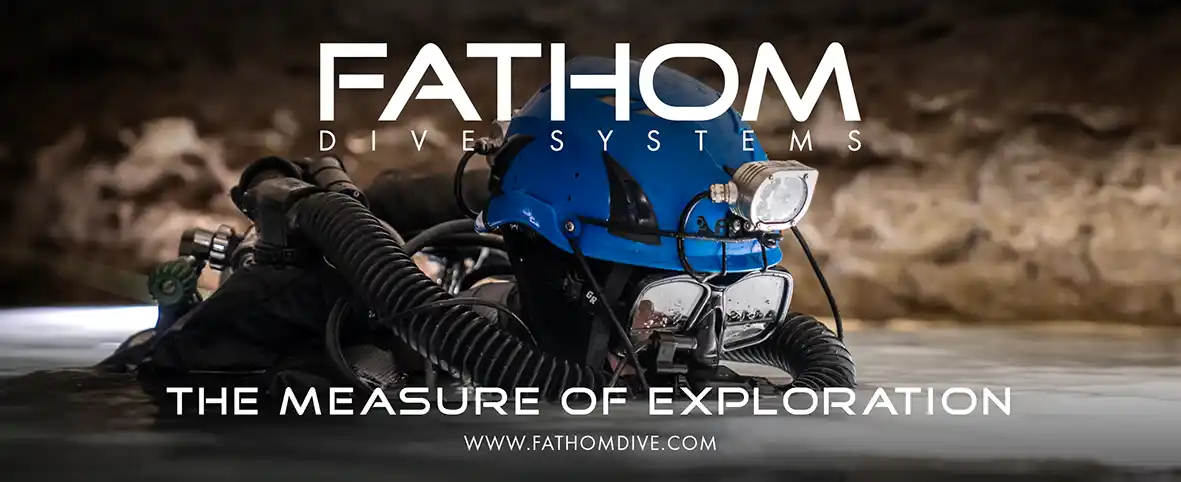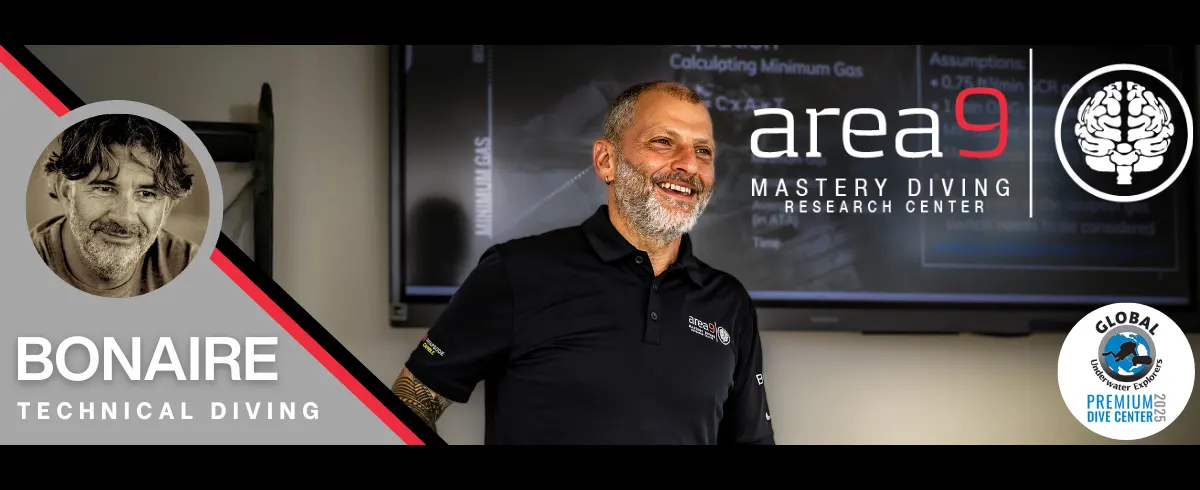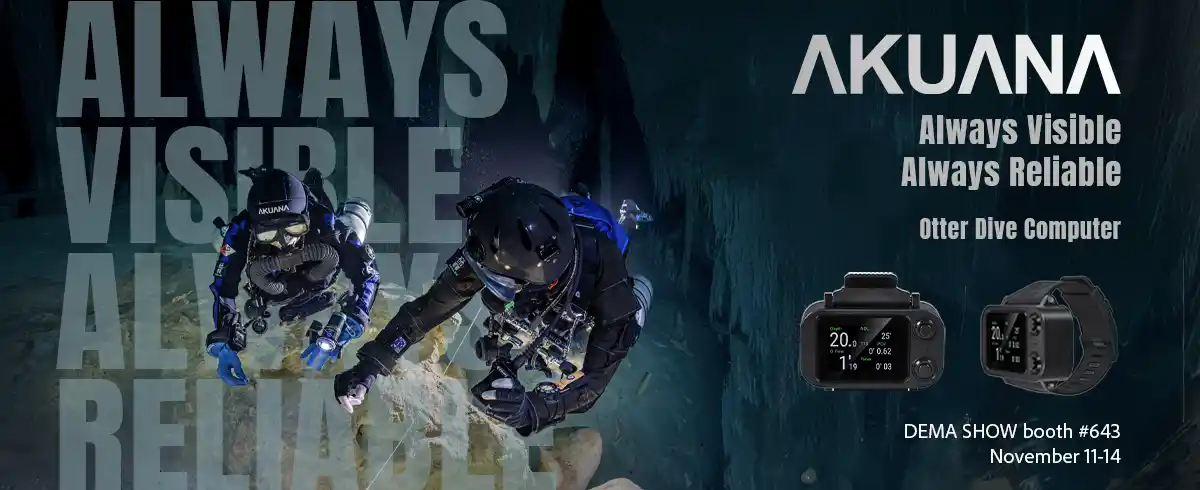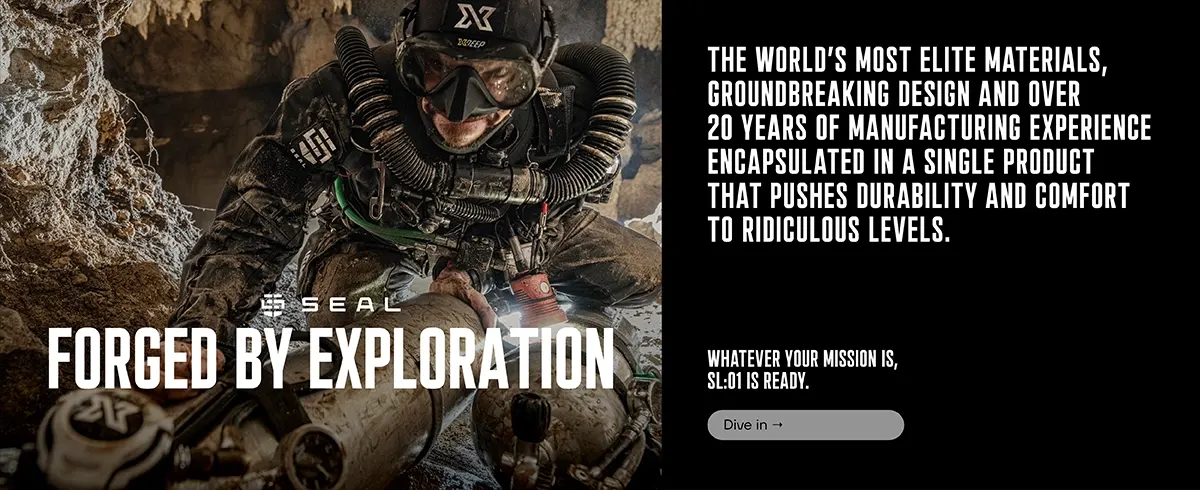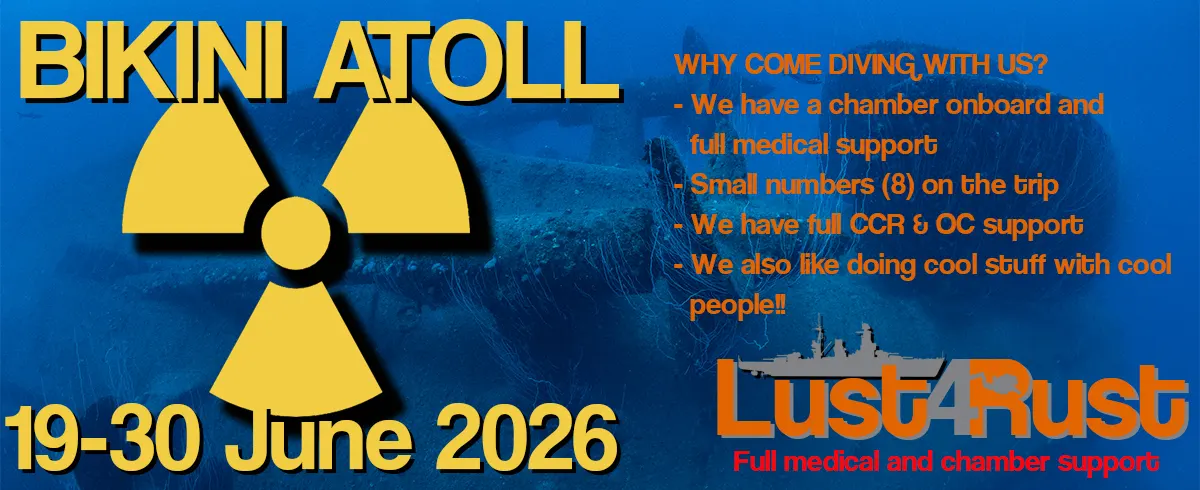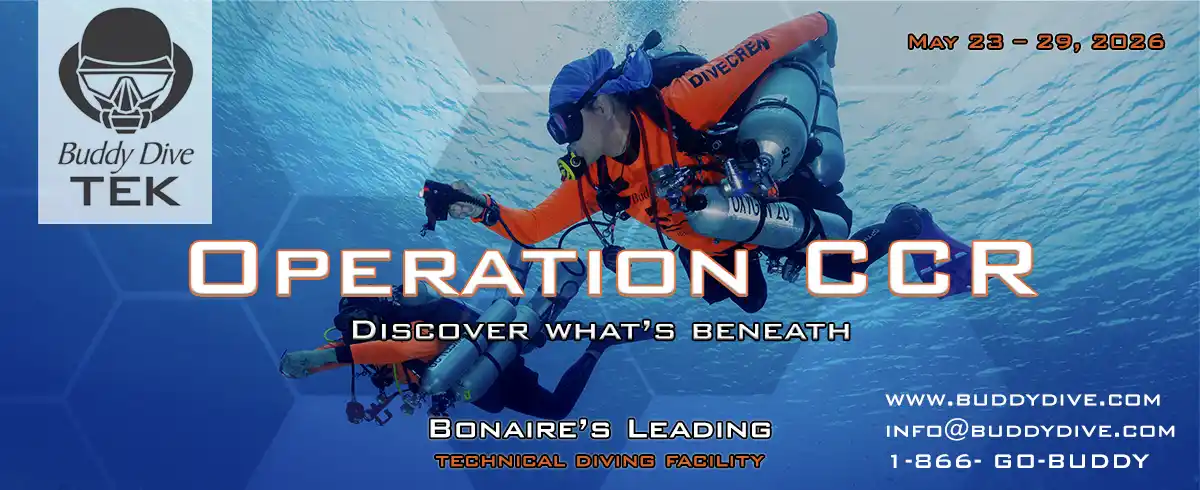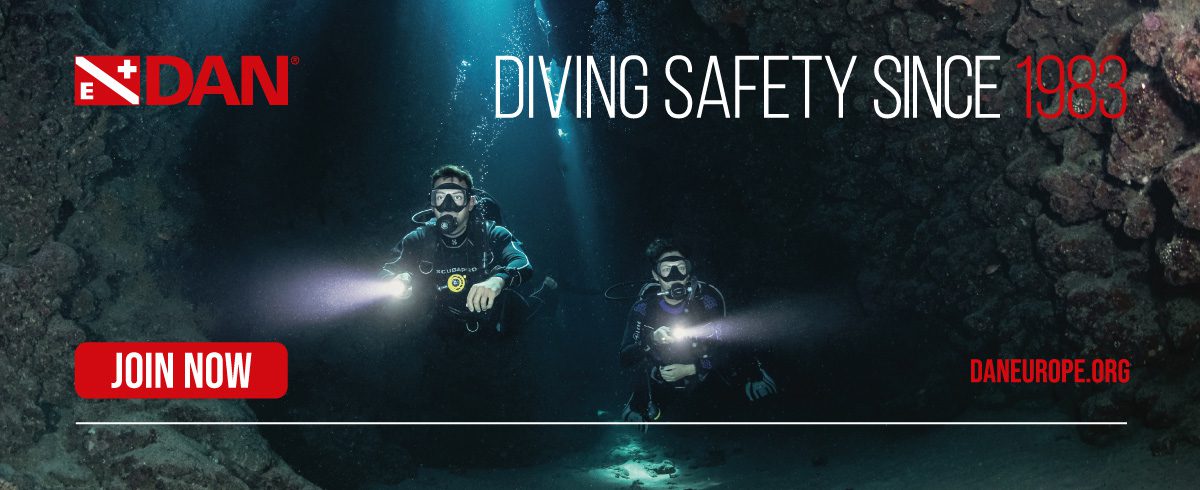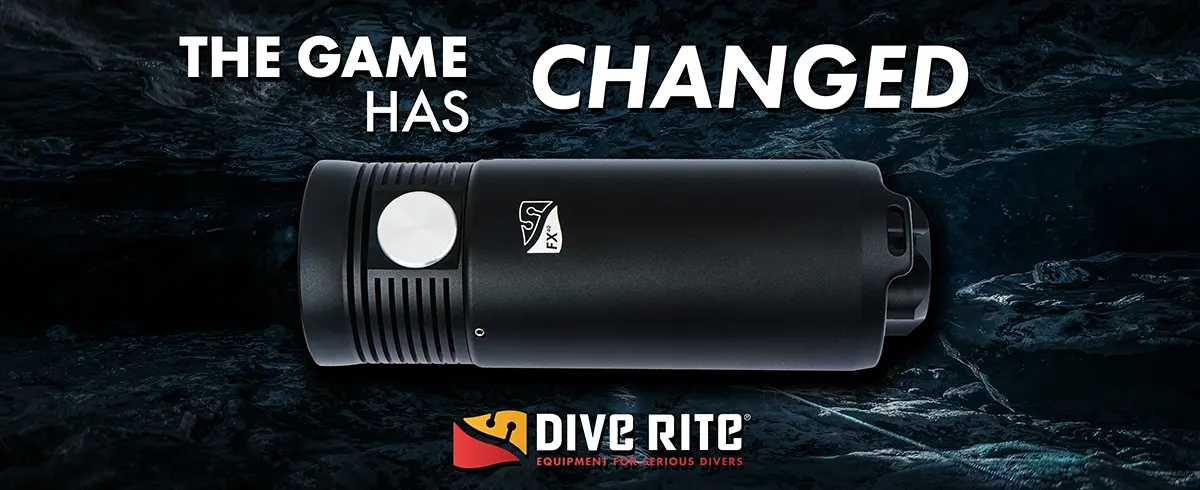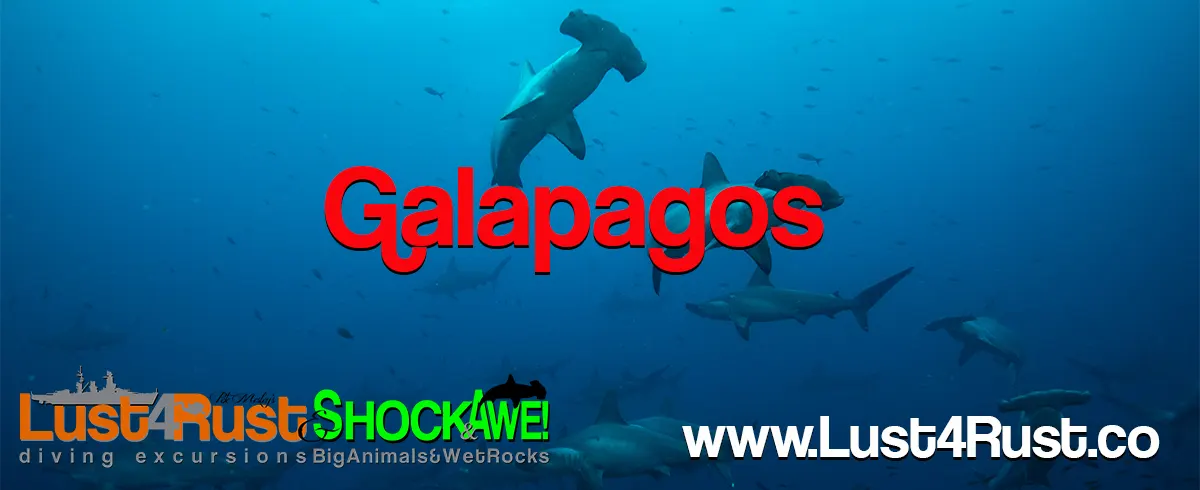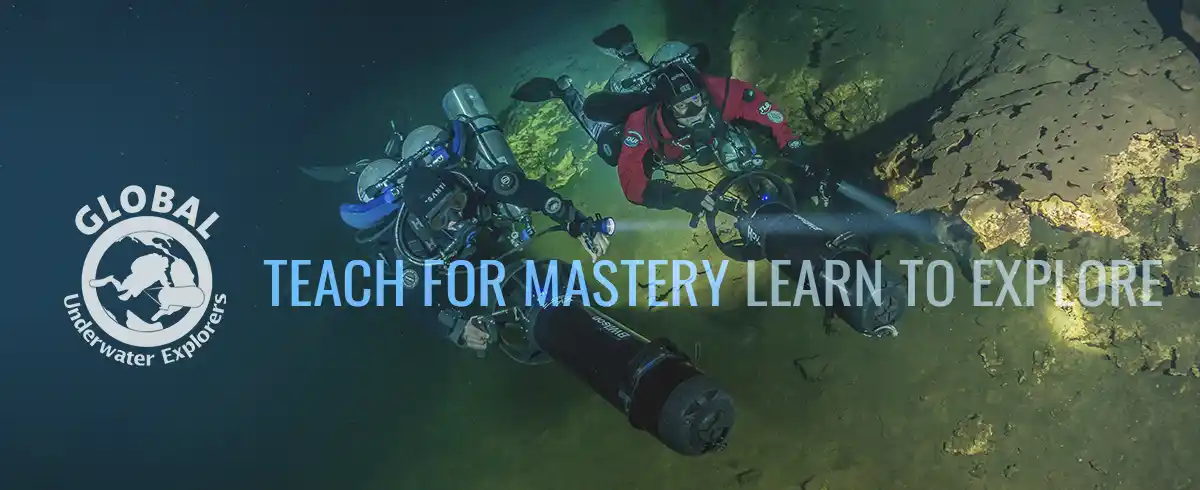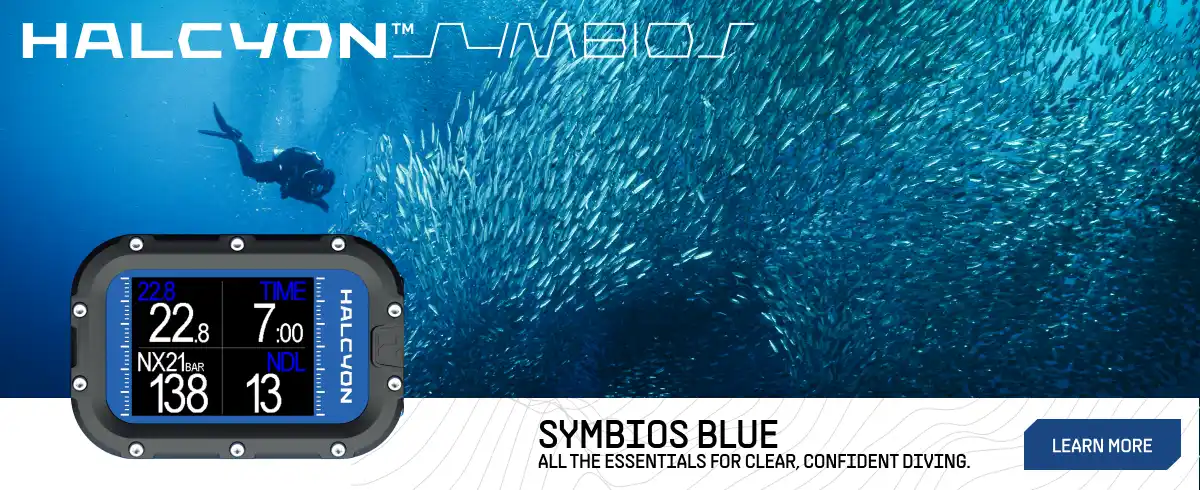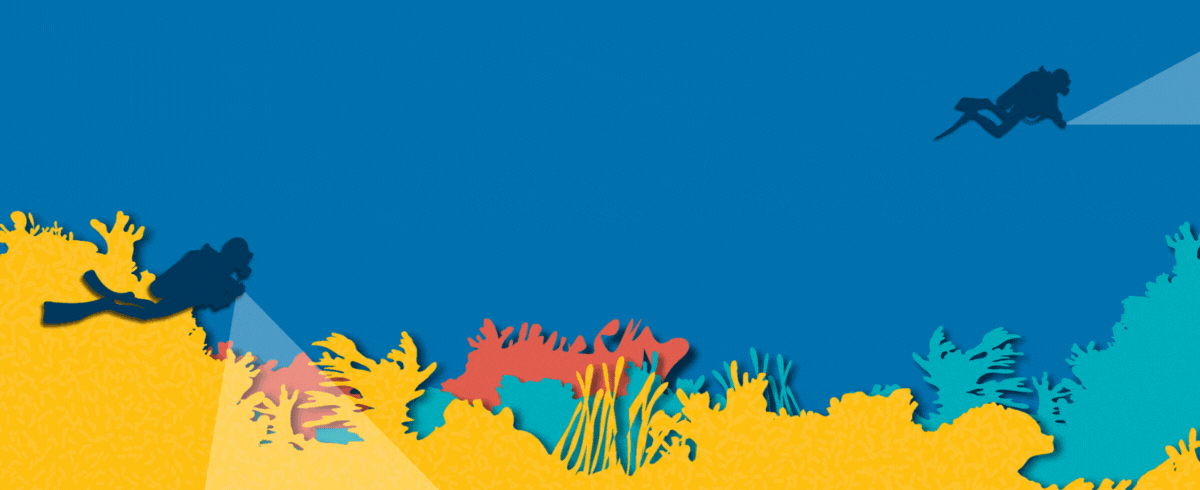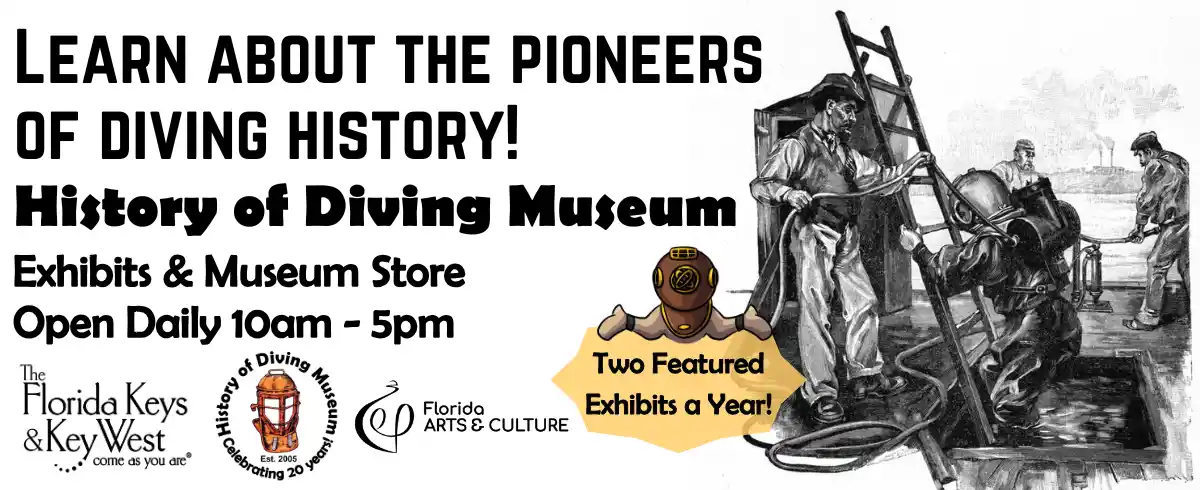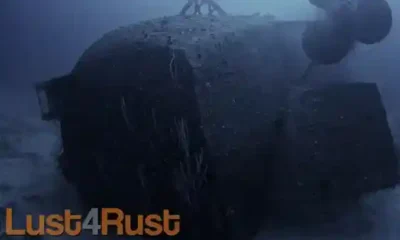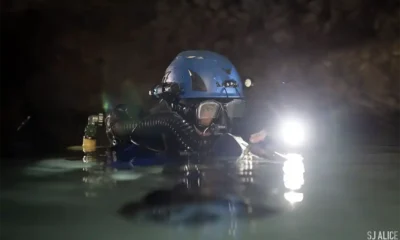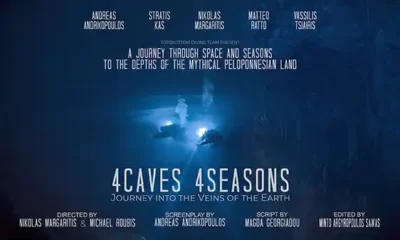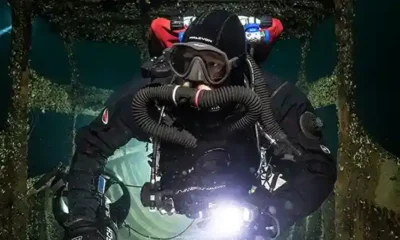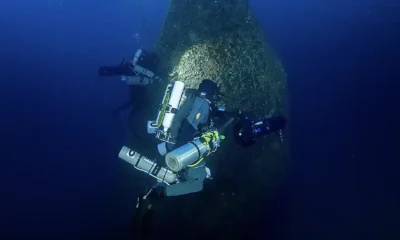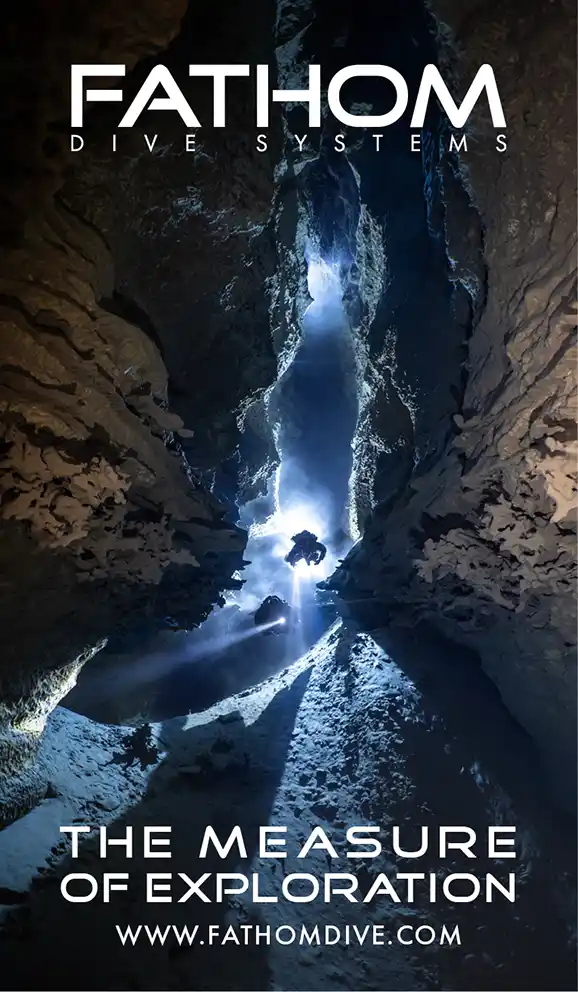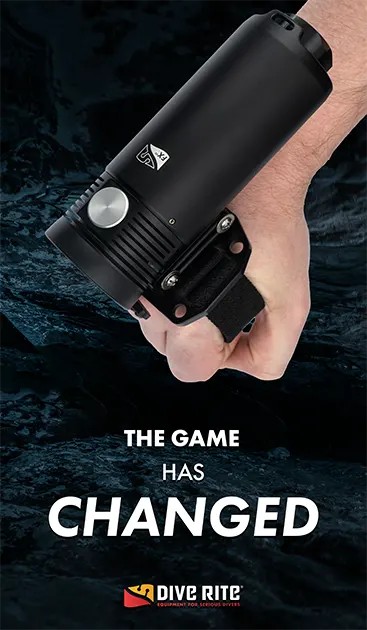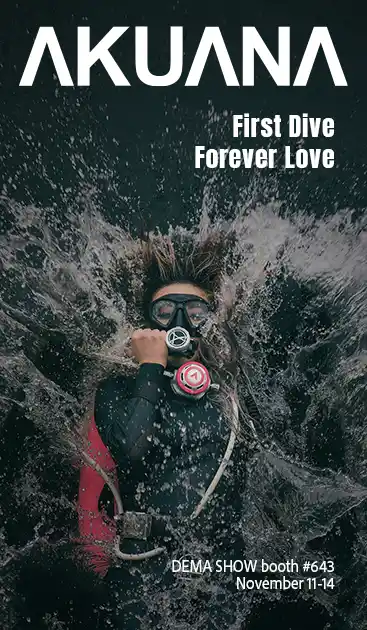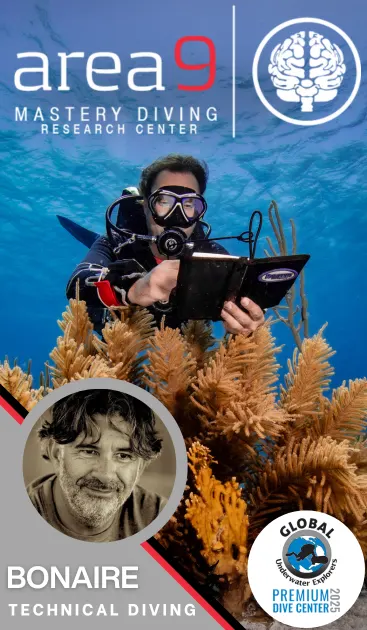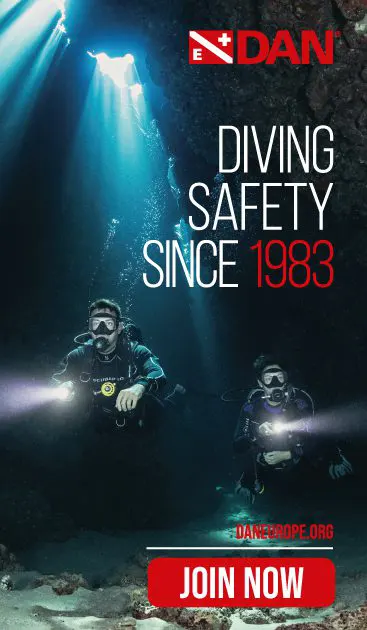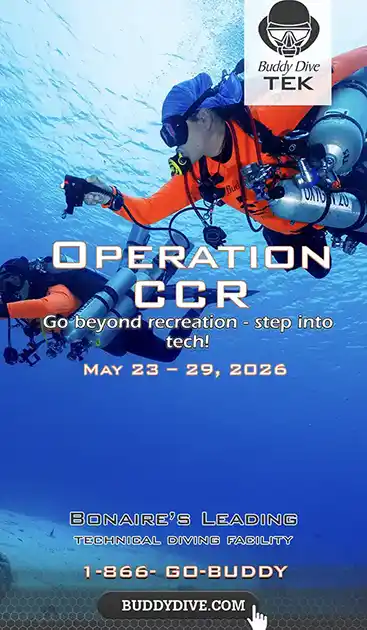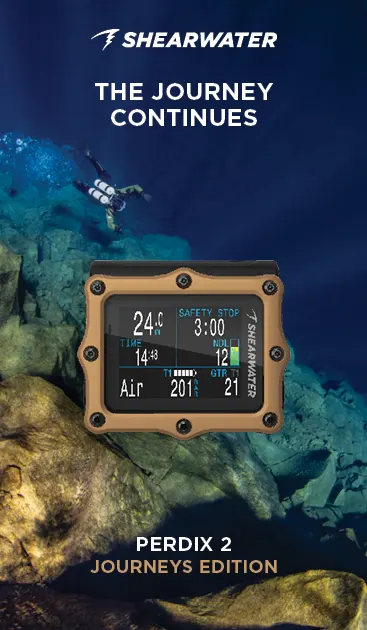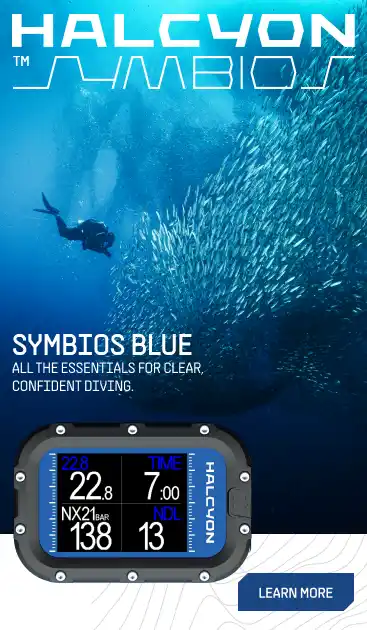Community
The Economics of Being a Tech Diving Instructor (2025)
By Darcy Kieran. Photo credits as shown.

Is it possible to make a career as a tech diving instructor? How about having a couple of instructor trainer credentials to boot? Here, Darcy Kieran, principal of The Business of Diving Institute, dives into the economics of being a tech dive instructor based on the results of our joint global instructor survey. How much money did you say you hoped to make?
We first conducted this survey in 2021. This is a repeat of the survey conducted in February and March 2025.
Based on the answers to the InDEPTH & Business of Diving Institute survey, we will attempt to answer the question: Is tech diving instructor/instructor trainer a viable career decision, or is it best thought of as a part-time job, albeit a fun one?
The survey results help determine realistic salary expectations and hopefully assist in answering the question of whether pursuing this career is a good investment of time and money. We also examine the aspirations of tech diving instructors and the number of dive training agencies with which they are associated.
Who answered the survey?
Before jumping into the exciting parts of the study, let’s have a quick look at who answered the survey.
Participation showed a bias toward instructor trainers with extensive experience as dive instructors. Presumably, this group is more committed to the industry and is, therefore, more receptive to spending time answering the survey.
817 dive instructors active in 2024 responded to the survey, of whom 49.8% held tech diving instructor credentials.
This first InDEPTH report will focus on these tech diving instructors. Keep an eye on The Dive Industry Compass created by The Business of Diving Institute for the report on recreational dive instructors.
Who were the tech diving instructors who participated in the survey?
Tech diving instructor respondents were teaching in the following regions:
- USA (incl. AK & HI): 35.5%
- Western Europe: 27.1%
- Mexico, Central America, Caribbean, Tropical Atlantic: 8.4%
- Australia, New Zealand: 5.6%
- Canada: 5.4%
- South Pacific, Indo-Pacific, Other Tropical Asian Region: 4.7%
- Other: 13.3%

They had teaching status in 2024 in the following categories:
- 91.6% recreational diving (incl. nitrox)
- 83.2% tech diving (other than cave & rebreathers)
- 56.1% First/CPR/O2/Public Safety
- 31.8% rebreather diving
- 28.0% cave diving
- 13.1% adaptive/handicapped scuba
- 3.7% freediving
- 0.9% tankless (surface-supplied air) diving
53.3% of tech diving respondents were actually tech diving instructor trainers.
Among those who were tech diving instructor trainers, they had teaching status in 2024 in the following categories:
- 83.1% recreational diving (incl. nitrox)
- 52.3% First/CPR/O2/Public Safety
- 44.6% tech diving (other than cave & rebreathers)
- 23.1% rebreather diving
- 15.4% cave diving
- 9.2% adaptive/handicapped scuba
- 1.5% freediving
- 0.0 % tankless (surface-supplied air) diving
For the most part, they were experienced instructors. 67.3% of the tech diving instructor respondents had been teaching for 10 years or more, and 23.4% for 5 to 9 years.

Of the tech diving instructors who responded to the survey, 84.9% identified as male.
The age groups of respondents were as follows:
- 3.8%: 1946-1954 (Boomers I)
- 15.0%: 1955-1964 (Boomers II/Generation Jones)
- 57.9%: 1965-1980 (Generation X)
- 19.6%: 1981-1996 (Millennials)
- 3.7%: 1997-2012 (Generation Z)

The rest of this article is a presentation of data from tech diving instructors and instructor trainers for rebreather, cave, and other tech diving courses, unless otherwise specified. The following data are from tech diving instructors who were in teaching status in 2024. All currency amounts are in U.S. dollars.

Annual Income and Sources of Income
46.7% were teaching diving full time or regularly. Yet, only 34.6% indicated that teaching diving was their main source of income. The total combined income of all members of their household in 2024, from all sources, was $148,390.46.
Their average annual income from scuba diving, including tips, was $27,574.32. However, instructor trainers fared better, with an average annual income of $41,378.37, while instructors earned an average of $11,714.34 per year.
Similarly, those who taught full-time or regularly earned more, at $45,361.67, than those who taught part-time or occasionally, at $10,813.15.
How much money have tech diving instructors invested in their careers?
This is how much tech diving instructor respondents have invested on average to develop their career:
- $45,058.81 in training
- $67,520.30 in dive equipment

How many students did you certify in 2024?
- Instructor trainers: 79.0
- Instructors: 32.3
Under which umbrella did you primarily teach diving?
- 63.2%: Independent / Self-employed
- 20.8%: Dive Center in a Non-tourist Location
- 10.4%: Resort / Dive Center in a Tourist Destination
- 4.7%: Dive Club / College & University Program
- 0.9%: Liveaboard
So, do you believe diving teaching to be a viable career path for people to earn a living?
- No: 52.8%
- Yes: 47.2%

With which dive training agencies were you in teaching status in 2024?
- TDI: 42.9%
- SDI: 39.2%
- PADI: 30.8%
- SSI: 18.7%
- IANTD: 14.9%
- DAN: 14.0%
Other dive training agencies had fewer than 10% of the respondents.
In which of the following activities have you NEVER taught courses, but INTEND to teach in the future?
- Rebreather diving: 32.7%
- Cave diving: 23.4%
- Adaptive / Handicapped scuba: 18.7%
- Freediving: 13.1%
- Tankless (surface-supplied air) diving: 11.2%
- Tech diving (other than cave & rebreathers): 10.3%
- First Aid / CPR / O2 / Public Safety: 3.7%
- Recreational diving: 1.8%
What professional goals do you currently have in relation to the dive industry?
- 38.3%: Taking professional development training not directly related to diving skills (customer service, business management, sales & marketing, etc.)
- 17.7%: Becoming an instructor trainer (course director)
- 13.1%: Owning a dive center in a non-tourist location
- 9.3%: Owning a resort / dive center in a tourist destination
- 0.9%: Owning a liveaboard
How many personal dives (non-teaching) have you done in 2024?
An average of 104.4 dives.

What are your main challenges as a dive instructor?
Please note that many comments had to do with time and money (income).
“Marketing.”
“Money.”
“Scheduling pool time.”
“No one wants to spend money on good instructors, other instructors kill the price you can ask for.”
“Time.”
“Most dive shops can’t afford to pay a wage and pay per student, and then you’re limited to their ability to advertise and put students in your class. We advertise mostly by word of mouth. I make more money teaching independently, but it never works out to be enough to be a full time job.”
“Local regulations (fisherman boats!) and finding good staff who want to keep working.”
“People who think diving skills can be acquired by paying money.”
“Making ends meet.”
“Time schedule between teaching and personal diving.”
“Customer attitudes.”
“Making time for all of the requested courses.”
“Getting enough students (multiple mentions)”
“Time management, dive shop staff experience.”
“A general tendency in the industry to offer dumping prices, even when the market does not require it.”
“Acquiring students who are willing to pay the course fee and not go to someone cheaper, but then complain they didn’t learn any of the things that come in my course.”
“Student acquisition.”
“To get time for my family.”
“Low income and very dependent on health.”
“Time required to organize students, logistics.”
“Financials!”
“Competition from other instructors, online sales of equipment from places like Amazon, students purchase low-quality gear.
“Finding new students.”
“Finding clients with enough disposable income.”
“Conversion ratios for specialty & advanced courses.”
“Teaching full-time and increasing the number of students”
“When I relocated to the Tulum/Playa Del Carmen area from the United States to become a Technical and Cave Diving Instructor, I faced repeated threats to my life and property from other technical diving instructors in the area. I filed a formal complaint with SSI, but no action was taken. Additionally, local dive shops were extorted by both the police and the cartel, with demands for money at checkpoints and within the community.”
“Few students, declining interest in tech diving.”
“I still have to work for another company (even if my own) to make enough to keep my scuba business running.”
“General industry pressure, expenses, and managing customer expectations.
“Lack of administrative support, low pay compared to workload, liability assumption, and the irritating percentage of work I do for the student (95+%) for the little compensation received. Little control over setting course parameters to maximize learning, retention, safety for the student (I can make it a better, safer class for the student, but it will cost in my own personal time, uncompensated).”
“Getting government agencies to invest in public safety dive training.”
“The number of technical divers [is small]”
“Increasing student enrollment numbers.”
“Students who take up scuba diving because somebody else wants them to do so.”
“Being independent in a place where só few people take diving as a primary activity.”
“ Candidate [Instructor] engagement and commitment.”
“Public interest waning, people taking fewer risks.”
“Finding affordable dive insurance.”
“Getting enough students through the door.”
“Scheduling multiple students on similar programs.”
“Young or new instructors looking at quantity over quality”
“Dealing with people who are not ready for what they are coming to train for. Lack of consolidation between certifications. Card collectors. Other instructors with an inferior work ethic who just take money and issue certifications that are not deserved.”
“Fair market value $ for my teaching time.”
“At the start of my career, I travelled and didn’t need much, the new generation expects to make the same amount without the experience. I have always worked as a dive instructor and had enough depending on the country I lived in. Now I make more, but I have also completed more training, education, and gained additional experience. I don’t think it comes right from the start.”
“Cost of materials and insurance to sustain professional status.”
“Shitty instructors that are prostitutes in media and advertising, while being pushed and even granted ratings by agencies.”
“I own a dive shop and teach, so my time is extremely limited. Also, in our area, access to water and pools is very limited.”
“The economy at global scale.”
“Creating a consistent continuous flow of students progressively growing and seeking higher dive education.”
“Finding students.”
“Getting students.”
“Dealing with other instructors.”
“Growing number of instructors versus lower student numbers + the cost of one’s own diving and building experience.”
“Advertising and client generation.”
“Dedicating the time needed for teaching when I still have a “day job” and a family to support. Dealing with shop owners who don’t pay enough for what they expect in return. Finding time for my own professional development to become a better (or higher level) teacher.”
“Students who do not see the reason for good training and will not take enough time for it.”
“To be the best educator I can be.”
“Overcoming the onslaught of people who state that you can’t make a living out of diving.”
“Helium prices.”
“Getting students.”
“Costs are high (insurance, equipment, training, travel), and income is low.”
“The dive industry has capped the income that dive instructors can earn. Most training agencies are focused on generating a profit for the agency through material sales and PICs, and have made little effort to educate the buying public on the true value of dive instruction. From my experience, PADI is the biggest culprit in the above.”
“Work ethics of younger new instructors.”
“Having a class with enough of students.”
“Time.”
“Cost and security of continuous business.”
“Scheduling.”
“Affordable housing.”
“Not earning enough money.”
“Long working hours, low pay, and work permits.”
“Selling equipment to new divers (most of them rent), getting along with digitization, e.g., getting the right materials, etc., laws and insurance rules.”
“Competitive lower prices. As expenses are skyrocketing, shops will not raise their prices.”
“The ability to make enough money so that I can eat, buy new dive gear, and also afford a trip back to my home country. I have been in this country for almost three years and do not have the financial ability to go home for a visit.”
“Getting customers without paying PADI an exorbitant amount to simply be mentioned as a dive instructor/ center on their website.”
“Being a high-quality instructor/shop, I have to compete with other shops that are in a race to the bottom as far as pricing. New divers don’t know how to differentiate or make educated decisions on the quality of training, so they often just look at the price tag of a course”
“Maintaining dive fitness as I grow older.”
“Age! I’ve been doing this for three decades and I’m winding down.”

What non-diving-skills-related professional development programs would you like to take as a dive professional?
- Accounting
- After years of training trainers, I would say, we need to teach people how to teach better.
- Bachelor of Tourism
- Boat knowledge
- Bookkeeping
- Business
- Coaching
- Communications, sales and technical skills
- Compressor maintenance
- Conservation
- Continued leadership training.
- Customer service and sales
- Customer services, marketing
- Customer service, marketing, sales, and administration
- Drawing, photo & video processing, film editing
- Education
- Equipment technician
- Geology Oceanography GIS 3D editing
- Good marketing
- Human factors in diving
- I continue to develop myself, human factors more in depth, and social media. How to post without the everyday burden.
- ISO standards
- Languages
- Leadership
- Learning language and web maintenance
- Management
- Managing a dive shop. Compressor maintenance. Fill station maintenance.
- Marketing
- Marketing and more advanced first responder training
- Marketing, social media, accounting management
- Marketing, Video editing
- Outboard engine maintenance
- Psychology
- Psychology and medical education.
- Reading and writing skills
- Risk Management, Human Factors
- Sales & Marketing
- Sales & marketing, Leadership
- Sales & Marketing, Human Factors in diving
- Sales and marketing, working with people in general
- Sales, tax laws
- Social media and marketing
- Social media, advertising artwork
- Web design
- Website development, social media skills

Please share any additional thoughts you have on the “economics” of being a dive instructor.
“There are easier ways to earn a better income.”
“Becoming a dive instructor is a rewarding endeavour, but it is without question a hobby lifestyle rather than a profitable career path. It has always been, and always will be.”
“As mentioned earlier, the dive industry has been greatly devalued over the past decade, and therefore, it is nearly impossible for most dive professionals to earn a decent income. A nonprofit organization, like GUE, definitely puts a high value mark on its instructors and their knowledge and experience, whereas other agencies, specifically PADI, tend to devalue their training, and therefore make it nearly impossible for an instructor to earn a living, even when instructing full-time.
If you were to go to the front page of the PADI website and look over what it takes to become a diver, you will find when the cost of instruction is brought up, the organization equates the cost to other training like a few private golf lessons, a half day of surf lessons, etc. In other words, PADI has already set the stage and the expectation that getting certified is something that could be done cheaply. I’ve reached out to the organization several times, as I’ve been an instructor for them for close to 15 years, and have never once heard back regarding any of these concerns.
Unfortunately, I don’t see any changes on the horizon. It seems in the professional scuba industry, the most important thing for most organizations is to, one, create new divers cheaply, and two, create more instructors, even if the industry cannot handle them. My assumption is that the reason for the push for the multitude of new instructors each year is to make up for the abundance of lost instructors who leave the industry because they cannot earn a living.”
“Currently, at most locations in the USA, there’s no good career path for being a dive instructor full time, unless you own the dive shop or at least work on the retail side of the dive shop to supplement your income. This does not seem to change very soon. The only (still) lucrative career path would be becoming a Course Director or IT and running the Instructor Development Center, or being a high-end Tech diving instructor. But even these options are limited, and I expect them to dwindle over time.”
“Dive instructors & dive businesses really need to have a better understanding about the value of training.”
“Dive shop owners are generally terrible at doing business. It’s shocking to me how so many of them lack even a rudimentary knowledge of business practices.”
“Despite all the naysayers, PADI has broken through the marketing barrier and made a real impact in bringing the sport back after the pandemic. The Aware Foundation has been developing new Conservation programs and incentivizing those programs impacting widespread successes in eco-tourism. And despite years of industry “experts” claiming PADI WAS losing ITS market share, it all turns out to be fake news. SSI is barely surviving despite Mares taking it over, and SDI just had to relaunch its brand to save it from oblivion, as its finances barely kept above water.
At the 2025 DEMA meeting, the NAUI board got hammered from all sides and ADMITTED THEY barely eked out cert numbers that are embarrassingly low, and still don’t have any environmental courses. Now the rest of the alphabet soup of other agencies is scrambling to survive. Let’s see you publish these comments like you do all your PADI bashing ones.”
“Good money can be earned, but the industry is very insular, not inclusive, fickle, and hostile. Because of the lack of an accurate way to prove who is better, the only way to shine is to shout louder and be more aggressive than the next person; this puts off a large number of women, new potentially successful people, and stunts the growth of the entire industry.”
“I believe anyone can make it in the industry; you need a good work ethic and take it like a business. Sometimes, new instructors cheapen the industry by offering freebies. This should be avoided. Instructors should learn how to treat their professions as businesses.”
“I think there’s a magic number for dive classes that provides more than “hobby money” for instructors but still allows dive shops to make a reasonable margin. I’d like to find it.”
“It took me years of training and working hard to make $70k only working for 26 weeks in 2024. Lots of sacrifices and not every day is easy, but I wouldn’t do anything else.”
“If you don’t make constant investments in your own development, you have no future in the industry.”
“In Mexico, excessive competition for a limited number of clients has driven the dive industry into a criminal enterprise, where people’s lives are now being threatened.”
“In my opinion, you need to be passionate about diving in every aspect. From being a role model to not leaving anything to chance. Don’t take anything for granted. If you can manage this, then diving will be a great career path, and YES, you can earn an honest living out of it.”
“In the UK, where I teach, the majority of “dive professionals” are unpaid volunteers. Typically, payment is in kind via free servicing, air fills, etc.”
“It can be a high liability profession.”
“It is a bad business, just a means to live a passion. The industry as a whole is disappointing.”
“One needs to be experienced and well-established, and also be good at business development if you want to be sought after.”
“It’s a long way to the top if you want to rock and roll.”
“It’s definitely not enough to just be an instructor to be successful in this industry.”
“It’s fun, but you will not be rich?.”
“It’s hard, but it’s a passion.”
“It’s a “love” job & nothing more.”
“It’s a way to be paid to go diving.”
“Even though it’s a nice job, we should be paid better since we have the responsibility of having people’s lives in our hands.”
“A lot of people think diving is not a long-term job. With the high numbers of new instructors every month with zero experience, it is easy for dive operations to keep salaries low. Instead of investing in experience, it is easy to pay a few bucks for a new instructor.”
“My dream is to make diving for a living, but it’s not possible at this very moment.”
“Allow yourself to learn something new every year, be the best you can be, don’t teach everything just what you’re really good at, deliver the knowledge with care, and charge accordingly.”
“One of the reasons for the low pay is that the industry focuses heavily on making new instructors. We do not need more instructors; we need better instructors who are compensated more fairly.”
“Scuba instruction is a “hard” dollar. It takes an increasing effort to be successful. And it takes a lot more than just being a “great” instructor.
“Teach part-time, have a ‘real job’ part-time, do what you love, and love what you do. Having a fall back job will allow you to charge what your time is worth – I understand the balance can be hard depending on circumstances. Give your students quality training and word will get out that you actually give value for money.”
“Thank you for this effort!”
“The earnings as a pure instructor are too low for a living, with also the chance to build up reserves for retirement.”
“The industry doesn’t teach how to make a living at this, and as such, most never figure it out. In fact, I would argue that you should expand this a bit to better determine what % of total income is derived from instruction, from the dive industry outside instruction, or from other non-dive industry sources (work of say pensions).”
“The main issues of the recreational industry seem to be self-made. Dive centres are running after a low-budget market, trying to undercut each other. We have been very successful here in establishing a business that goes after the small but affluent group of safari tourists. Our full-time instructors easily create revenue of CA$150,000 USD/instructor, not factoring in the common tips. Tech diving seems to be going the same way, though it is even easier there to make the sales pitch for more expensive, higher-quality training.”
“You are underpaid for the responsibility you have for your students.”
“We probably don’t live in the easiest economy, but I do believe there are a number of ways we can make a living in this industry.”
Return to So You Wanna Be a Tech Instructor?
DIVE DEEPER
InDEPTH: The Economics of Being a Tech Diving Instructor by Darcy Kieran (2021)

In the dive industry, Darcy Kieran has worked in retail and wholesale. He’s been a Course Director and scuba diving Instructor Trainer with numerous dive training agencies. He owned/managed dive shops, dive resorts, and charter boats in Canada and the USA. He’s been on the Board of Directors of DEMA. He has gained valuable experience from other industries, including sporting goods manufacturing, radio & TV broadcasting, railroads & transportation, digital marketing agencies, and education. Darcy is an engineer, radio announcer, and author.

